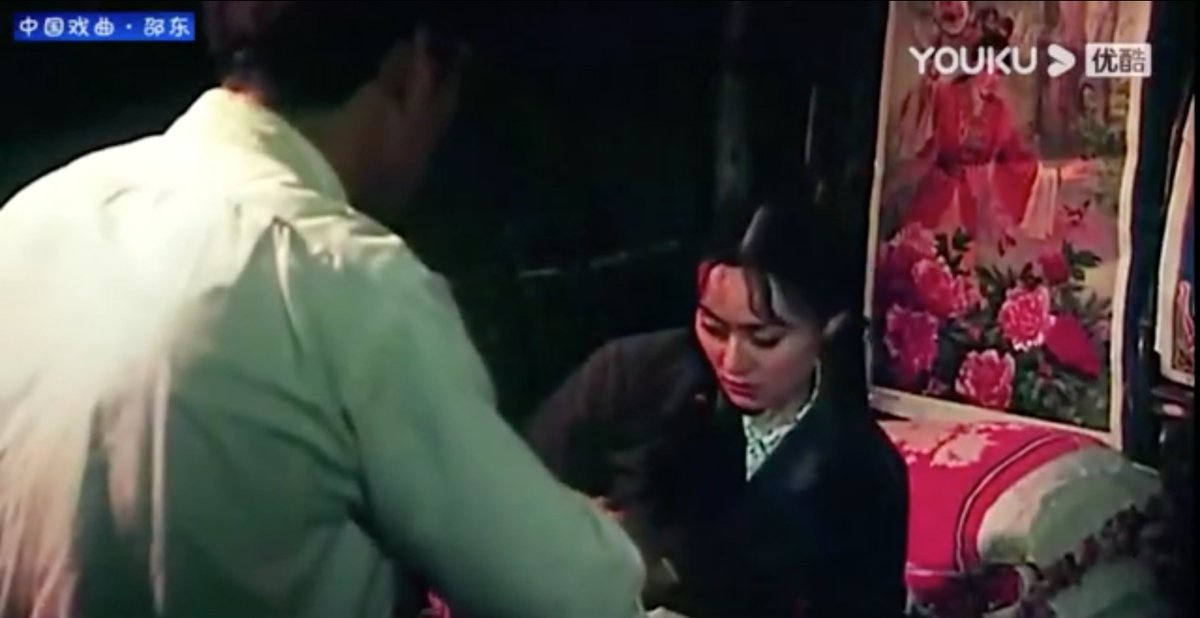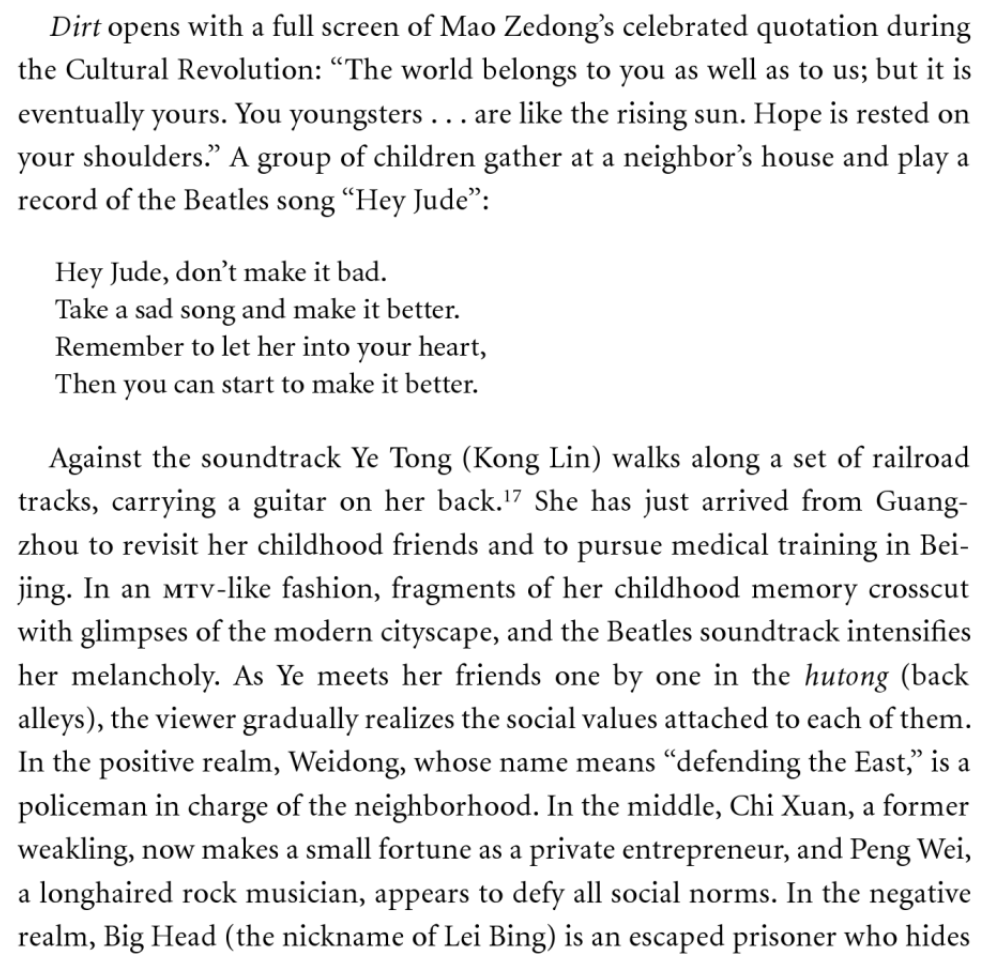
No sex work under communism: by 1951, all the brothels were closed and the workers sent to be rehabilitated and retrained. Love in the Wasteland 遗落荒原的爱 (1994) is about some of those women, made at a time when market reforms and social chaos had revived the profession. 







In the '50s, a group of women liberated from brothels has arrived under assumed names at a reclamation settlement in the Northeast. One of the agricultural workers named Ji Gang 纪刚 (Chen Xiguang 陈希光) falls in love with one of the women, Wen Xiu 文秀 (Song Jia 宋佳). 







One of the other women is unlucky enough to run into a former client, who recognizes her. Wen Xiu is also exposed. She's already pregnant with Ji Gang's child, but he rejects her. She ends up marrying the mute Wu Qi 吴起 (Li Xinmin 李心敏), who dies soon after. 







Ji Gang supports Wen Xiu and the child from afar, dropping off firewood, defending the boy from bullying, and sending him money when he goes away to college. It feels like an older film, but its lack of a healthy ideological message marks it out as a film of the 1990s. 







It's not unlike the stories of oppressed old society 旧社会 women that make it into films of the '60s and '70s, but here, the Party doesn't provide salvation. Ji Gang, the head of the production brigade, is the only real authority figure, and he abandons a pregnant woman.
Despite the specific history that takes the women to the Northeast, it feels more like a comment on the sexual politics of the present than those of socialist China, especially in comparison with another film of the same year: Blush 红粉, based on the Su Tong 苏童 novel...
...which is far more clearly about the time its set (Shanghai in the 1950s) and life under Maoism. You can enjoy Love in the Wasteland here...
v.youku.com/v_show/id_XNDg…
v.youku.com/v_show/id_XNDg…
• • •
Missing some Tweet in this thread? You can try to
force a refresh























